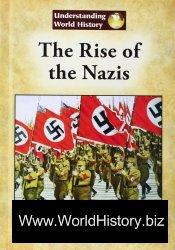The Fenian movement regarded any other issue, whether Home Rule, tenant rights, or church grievances, as distractions from the goal of an Irish republic. However by late 1878 more realistic minds in the movement, prompted primarily by its American support organization, Clan na Gael, in which the exiled former Fenian prisoner, John Devoy, played a leading role, began to think of cooperating, at least temporarily, with other popular forces in Irish politics.
One such force was the land movement started by Michael Davitt, whose family was evicted in County Mayo when he was a young child. He had been brought up in Lancashire, where he lost an arm in an industrial accident, and had been imprisoned for Fenian activism. Conditions were ripe for land agitation in the later 1870s as Ireland, like Britain in general, experienced a great agricultural depression consequent to significant declines in agricultural income following the import of American grains via faster shipping. The old Tory fears of free trade were coming home to roost with major long-range implications for the landed establishment in Britain and Ireland. In Ireland the most immediate effect was the increasing inability of farmers to pay their rents at the very time the landlords themselves were feeling economic pressure. Modern statistics suggest that farms of medium size, still rented, had done relatively well in the decades following the famine. It could be argued that the interruption of improvement, their inability to meet rent demands, and their fear of eviction stimulated their response to the appeal of Davitt for land reform.
Parnell, a landlord, was not especially drawn to the idea of alleviating tenants, never mind redistributing land. However, in late 1878 and early 1879, contacts between him and Clan na Gael resulted in the irregular alliance that would be called the "New Departure." It would consist of a suspension of the violent republican campaign and support for the parliamentary party, which would place its major emphasis on the settlement of the land question, that is, "on the basis of a peasant proprietary," after which home rule and then a republic would fall in place. It was an ingenious subordination of varying long-range and possibly contradictory roles so as to unite energies in the pursuit of a broadly popular goal.
In February 1879 Butt suffered a defeat at a meeting of the Home Rule Confederation on a motion calling for the parliamentary members to act more vigorously, that is, involve themselves in obstruction. Rebuffed by his support organization, Butt died the following May. A Cork Protestant, William Shaw, was elected as the parliamentary leader of the home rulers, but Parnell was amassing support and strength in other areas. Following negotiations with John Devoy and Michael Davitt, Parnell accepted the presidency of the Land League that Davitt had organized in October 1879. Early the next year Parnell was in the United States, where he addressed a joint session of Congress, cementing the New Departure and amassing funds for a forthcoming general election.
In that election the Home Rule Party elected 61 members, and in a caucus of the elected members, replaced Shaw with Parnell as leader. Shaw's supporters thereafter separated from the Home Rule group, identifying themselves with the Liberals. At the next general election in 1885, most of them lost their seats to Parnell supporters.




 World History
World History








